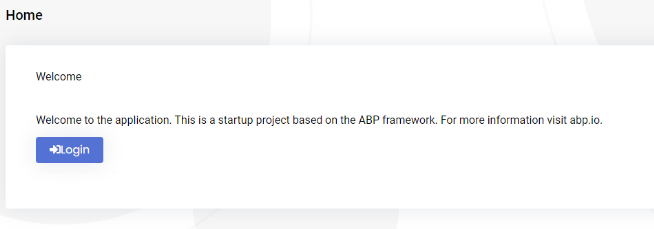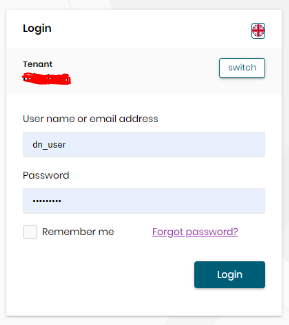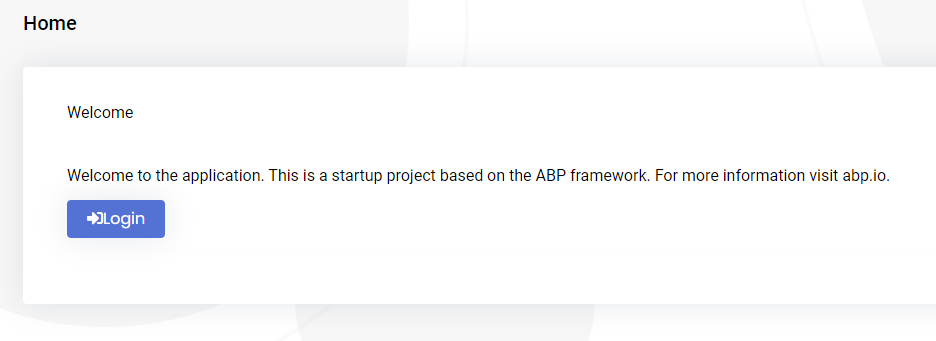Hi Anjali.
I have to reopen this ticket, because without using this.routesService.refresh() it appeared, that sometimes just setting items to invisible is not enough: menu is still shown complete (suprisingly - sometimes it DOES work properly - when navigating to specific page menu is rebuilt according to invisibility of items). But using this.routesService.refresh() makes combineLatest trigger again. Could you please suggest the changed code - where the menu always refreshes properly, but there are no extra unnecessary invocations?
init() {
this.routesService.flat.filter(x => x.requiredPolicy && (x as any).data?.moduleId).forEach(x => x.invisible = true);
this.routesService.refresh(); // HAVE TO USE IT to make invisibility to have effect
combineLatest([this.configStateService.getDeep$('extraProperties.modulePermissionMap'), this.routesService.flat$.pipe(take(1))])
.pipe
(
filter(([modulePermissionMap, route]) => Object.keys(modulePermissionMap).length > 0 && Object.keys(route).length > 0),
takeUntil(this.destroy)
)
.subscribe(([modulePermissionMap, nonLazyLoadedRoute]) => {
nonLazyLoadedRoute.filter(node => node.requiredPolicy).forEach((nonLazyRouteItem: ABP.Route) => {
let moduleId = (nonLazyRouteItem as any).data?.moduleId;
if (moduleId) {
const moduleIdPolicyViolated = !modulePermissionMap[moduleId] || modulePermissionMap[moduleId] && !modulePermissionMap[moduleId].includes(nonLazyRouteItem.requiredPolicy as string);
const ordinaryRolePolicyViolated = !modulePermissionMap['_ordinaryRole'] || modulePermissionMap['_ordinaryRole'] && !modulePermissionMap['_ordinaryRole'].includes(nonLazyRouteItem.requiredPolicy as string);
if (!moduleIdPolicyViolated || !ordinaryRolePolicyViolated) {
nonLazyRouteItem.invisible = false;
}
}
});
this.routesService.refresh(); // HAVE TO USE IT to make invisibility to have effect, but combineLatest is called again... :(
});
}
UPDATE: this is a modified version - does it look ok?
init() {
this.routesService.flat.filter(x => x.requiredPolicy && (x as any).data?.moduleId).forEach(x => x.invisible = true);
this.routesService.refresh();
let routeStateBefore = JSON.stringify(this.routesService.flat, ['name', 'invisible']);
combineLatest([this.configStateService.getDeep$('extraProperties.modulePermissionMap'), this.routesService.flat$.pipe(take(1))])
.pipe
(
filter(([modulePermissionMap, route]) => Object.keys(modulePermissionMap).length > 0 && Object.keys(route).length > 0),
takeUntil(this.destroy)
)
.subscribe(([modulePermissionMap, nonLazyLoadedRoute]) => {
nonLazyLoadedRoute.filter(node => node.requiredPolicy).forEach((nonLazyRouteItem: ABP.Route) => {
let moduleId = (nonLazyRouteItem as any).data?.moduleId;
if (moduleId) {
const moduleIdPolicyViolated = !modulePermissionMap[moduleId] || modulePermissionMap[moduleId] && !modulePermissionMap[moduleId].includes(nonLazyRouteItem.requiredPolicy as string);
const ordinaryRolePolicyViolated = !modulePermissionMap['_ordinaryRole'] || modulePermissionMap['_ordinaryRole'] && !modulePermissionMap['_ordinaryRole'].includes(nonLazyRouteItem.requiredPolicy as string);
if (!moduleIdPolicyViolated || !ordinaryRolePolicyViolated) {
nonLazyRouteItem.invisible = false;
}
}
});
let routeStateNow = JSON.stringify(this.routesService.flat, ['name', 'invisible']);
if (routeStateNow !== routeStateBefore) {
routeStateBefore = routeStateNow;
this.routesService.refresh();
}
});
}
Hi Anjali,
unfortunately, it did not help - still getting 401 on logout in one of two methods. Suprisingly, this method has another problem - it is for some reason invoked twice, even though in debug I just got it triggered once.
I'm attaching the Home module code - probably you will figure out what is wrong. It is actually not my code, so I am not sure I would be able to reply you all the questions. But I'm ready to assist in any possible way.
Thank you. Home page
Actually one more thing confuses me: after I do log out - I'm redirected to this page ("Home"):
 instead of this:
instead of this:
 So I need to click "Login" again to be redirected to the second dialog.
But the routing in the app is the same as in test ABP app...
So I need to click "Login" again to be redirected to the second dialog.
But the routing in the app is the same as in test ABP app...
I've finally managed to resolve my issue. I will show my approach - probably this would come in handy for someone:
Actually two steps are needed:
Create permission itself and add it as a child either to another custom permission or to the root permission node (in my case it is roleSubgroupPermissionDefinition):
readModuleRolePermissionDefinition = roleSubgroupPermissionDefinition?.AddChild(readRoleName).WithProviders(ModulePermissionRoleValueProvider.ProviderName);
Add the created permission to PermissionDefinitions collection of ABP static permission store:
await (_staticPermissionDefinitionStore as IExtendedStaticPermissionDefinitionStore).AddPermissionDefinitionAsync(readModuleRolePermissionDefinition.Name, readModuleRolePermissionDefinition);
For this, i've extended ABP class with own methods. They are very simple - just to have access to PermissionDefinitions collection:
public Task AddPermissionDefinitionAsync(string key, PermissionDefinition permissionDefinition)
{
if (!PermissionDefinitions.ContainsKey(key))
{
PermissionDefinitions.Add(key, permissionDefinition);
}
return Task.CompletedTask;
}
Nothing more is needed - no refresh or something...
Thank you for your cooperation.
I already did this before. And I'm getting the error about missing custom permission definition group:
 All other permission definition groups are at place.
When I do not override
All other permission definition groups are at place.
When I do not override StaticPermissionDefinitionStore - the custom permission definition group is present as expected.
What do I need to adjust in MyStaticPermissionDefinitionStore to make the group available?
To avoid compile errors, I had also to add providers: [SubscriptionService] to app.component.ts - hope it is a correct string.
But anyway - closeAll() call did not help: i'm still getting the same 401 error on logout. It happens to any method which is obviously being loaded at the moment of logout. The methods are pretty typical:
//some component
this.fineDigitLoading = true;
this.fineDigitsService
.getById(fineDigit.ordinanceId, fineDigit.number, fineDigit.subdivision, fineDigit.version)
.pipe(
finalize(() => (this.fineDigitLoading = false)),
takeUntil(this.unsubscriber$)
)
.subscribe((state: FineDigits.FineDigit) => {
...
});
//fineDigitsService
getById(
ordinanceId: number,
number: string,
subdivision: string,
version: number): Observable<FineDigits.FineDigit> {
return this.restService.request<void, FineDigits.FineDigit>({
method: 'GET',
url: `/api/md/fine-digits/${ordinanceId}/${number}/${version}/${subdivision === null ? '' : subdivision}`,
},
{ apiName: this.apiName });
}
//base class for any component
ngOnDestroy(): void {
this.ngOnDestroyInner();
this.unsubscriber$.next(null);
this.unsubscriber$.complete();
}
Probably the latter approach is the reason? When the user is logging out - the current component is not being destroyed, so ngOnDestroy is not being triggered. If this is the case - please let me know the recommended approach to unsubscribe from all API calls by adjusting the code in base component class - adding 'logout' event handling which is now done in app.component.ts? Suprisingly I did not see any special handling for such scenario in ABP components...
UPDATE: I've added this to Base component constructor, but stil keep getting the same 401 errors:
this.oAuthService.events
.pipe(filter(event => event?.type === 'logout'), takeUntil(this.unsubscriber$))
.subscribe(() => {
this.unsubscriber$.next(null);
this.unsubscriber$.complete();
});
The above part IS triggered after I click "Logout" link. But after this my server API calls are still made. How it's possible if I use takeUntil(this.unsubscriber$) for all API calls?
ABP 7.0.1 / Angular
My home page shows some information to an authenticated user via API calls. If the user logs out - these methods need not to be invoked anymore.
Seems like I've tried all possible ways - and it still DOES call those methods with "Not authorized (401)" error from server after I click "Logout" button. I also have tried to call Subscription$.unsubscribe() while logging out, but it still does not work.
Another question: I can logout from any page, not just Home page. There are plenty of API call subscriptions on each of them. How am I supposed to unsubscribe from all such calls with minimal code changes??
Here is the piece of the code of my Home page:
ngOnInit() {
this.oAuthService.events
.pipe(
filter(event => event?.type === 'logout'),
tap(() => {
this.logout$.next(null); //those are called, but API calls are still invoked
this.logout$.complete();
}))
.subscribe();
this.homeService.getNewsForHomePage()
.pipe(filter(() => this.configStateService.getDeep('currentUser.isAuthenticated')), takeUntil(this.destroy), takeUntil(this.logout$))
.subscribe((newsResponse) => {
...
});
this.homeService.getUrlsForHomePage()
.pipe(filter(() => this.configStateService.getDeep('currentUser.isAuthenticated')), takeUntil(this.destroy), takeUntil(this.logout$))
.subscribe((newsUrlParameterResponse) => {
...
});
}
ngOnDestroy(): void {
this.destroy.next(null);
this.destroy.complete();
}
Moreover - when I am already at this page (where this.configStateService.getDeep('currentUser.isAuthenticated') is supposed to be false, I guess):
 the API calls are still invoked.
the API calls are still invoked.
Thank you! I've also removed this.routesService.refresh(); both occurences and seems to be working fine now.
I've overridden ABP PermissionAppService and debugged it. No issue found inside - the code below is called and contains correct data:
public virtual async Task UpdateAsync(string providerName, string providerKey, UpdatePermissionsDto input)
{
await CheckProviderPolicy(providerName);
foreach (var permissionDto in input.Permissions)
{
await PermissionManager.SetAsync(permissionDto.Name, providerName, providerKey, permissionDto.IsGranted);
}
await RabbitMqManager.UpdateAbpPermissionsAsync(input.Permissions, providerName, providerKey, CurrentTenant.Id);
}
So moving on, I've overriden PermissionManager too and found out that SetAsync does not actually update DB:
I can see though, that there's no point to override PermissionManager - its method is very simple:
public override async Task<PermissionDefinition> GetOrNullAsync(string name)
{
Check.NotNull(name, nameof(name));
return await _staticStore.GetOrNullAsync(name) ??
await _dynamicStore.GetOrNullAsync(name);
}
So I proceeded - overridden StaticPermissionDefinitionStore:
[Dependency(ReplaceServices = true)]
[ExposeServices(typeof(IStaticPermissionDefinitionStore))]
public class ApiStaticPermissionDefinitionStore : StaticPermissionDefinitionStore, IApiStaticPermissionDefinitionStore
{
public ApiStaticPermissionDefinitionStore(
IServiceProvider serviceProvider,
IOptions<AbpPermissionOptions> options) : base(serviceProvider, options)
{
}
public void AddPermissionDefinition(string key, PermissionDefinition permissionDefinition)
{
if (!PermissionDefinitions.ContainsKey(key))
{
PermissionDefinitions.Add(key, permissionDefinition);
}
}
}
My idea was to create a method in my IStaticPermissionDefinitionStore override, where I would FORCE adding a new PermissionDefinition to the existing collection. However, after adding it I've discovered that a whole custom permission definition collection is broken. BTW - inside AddPermissionDefinition I've looked at a whole PermissionDefinitions collection and suprisingly discovered that not all definitions are there: my custom definitions were not there by this time (yet?)
Probably you can suggest another way around this?
Hi,
we need to check this remotely, as we are unable understand the tenant switch scenario. is that okay with you?
As I wrote before, probably to reproduce the issue, tenant switching is not needed: it can be just UI button click which triggers https://localhost:44337/[test-app]/application-configuration?includeLocalizationResources=false call.
Where the overriden AbpApplicationConfigurationAppService GetAsync() method returns the mentioned structure in extraProperties, so if some Module ID has false - the relevant page needs to be removed from ABP navigation menu. If the Module ID is not there - the page needs to be shown again. And this structure is randomly generated on each button click (giving different Module IDs from the existing ones), imitating tenant switching. Does it make sense to you?
Anyway, our policies do not allow us to share the code or show it via screen-sharing... Sorry.
Will try, thank you. Will keep you posted.

